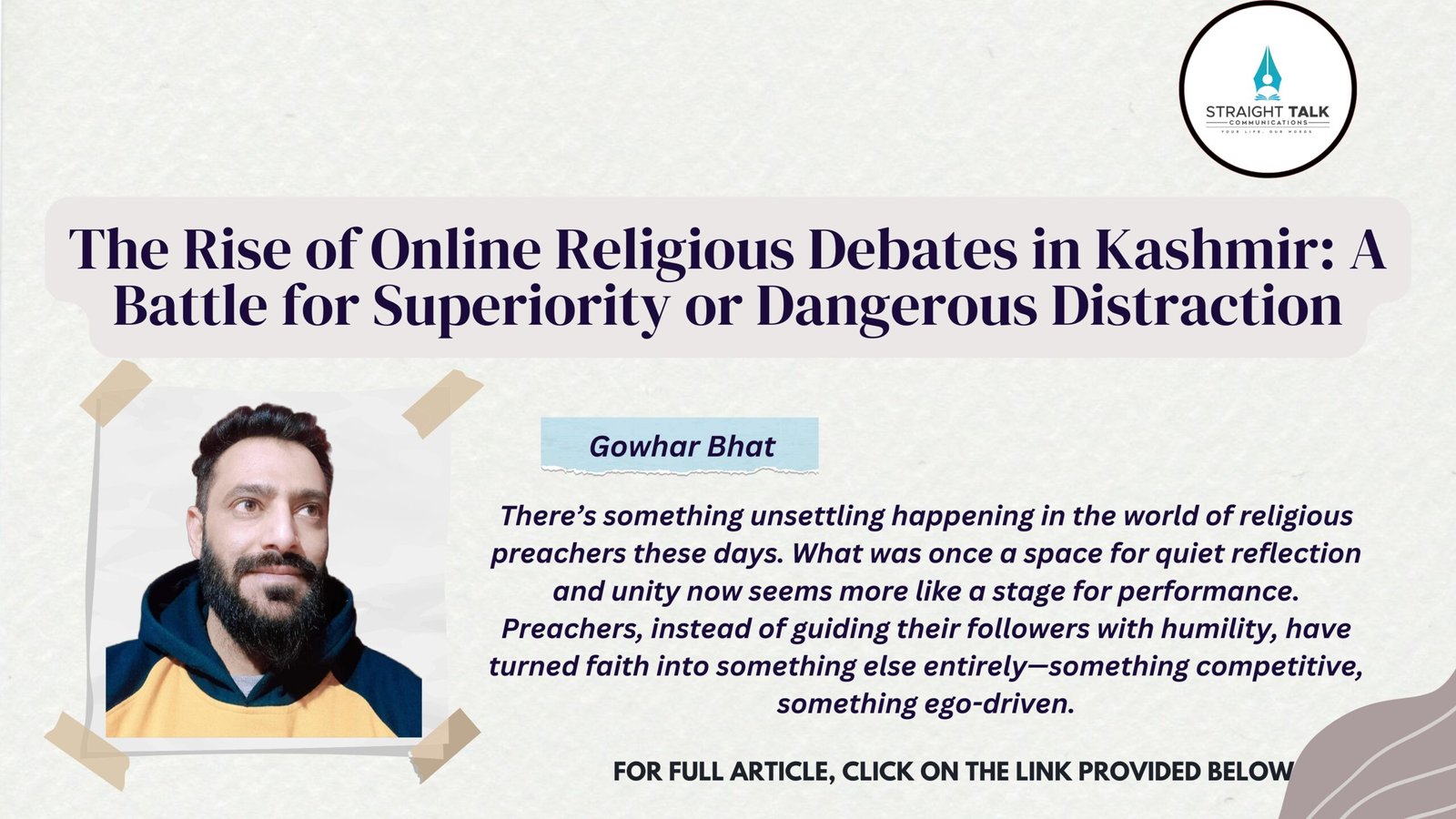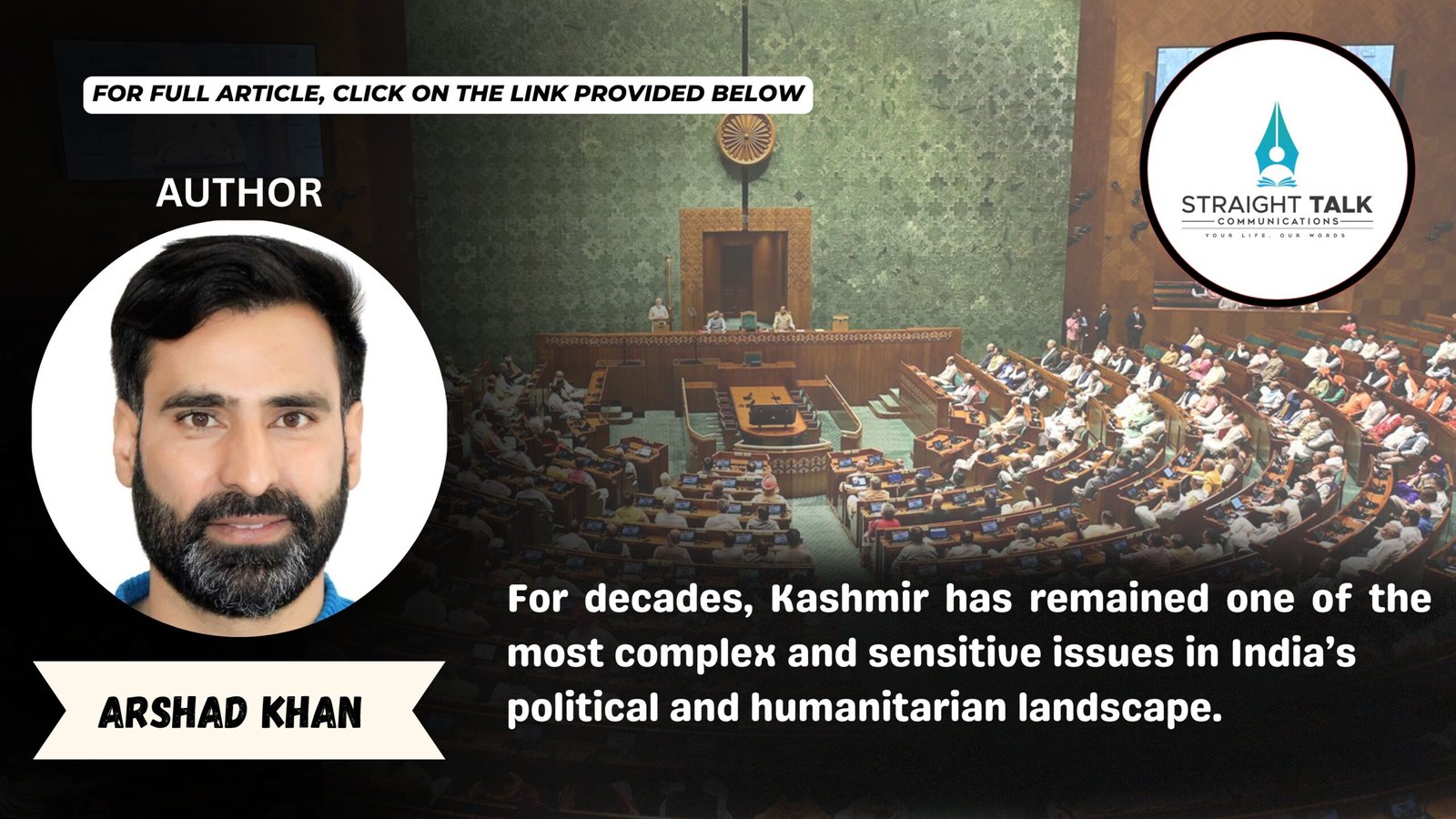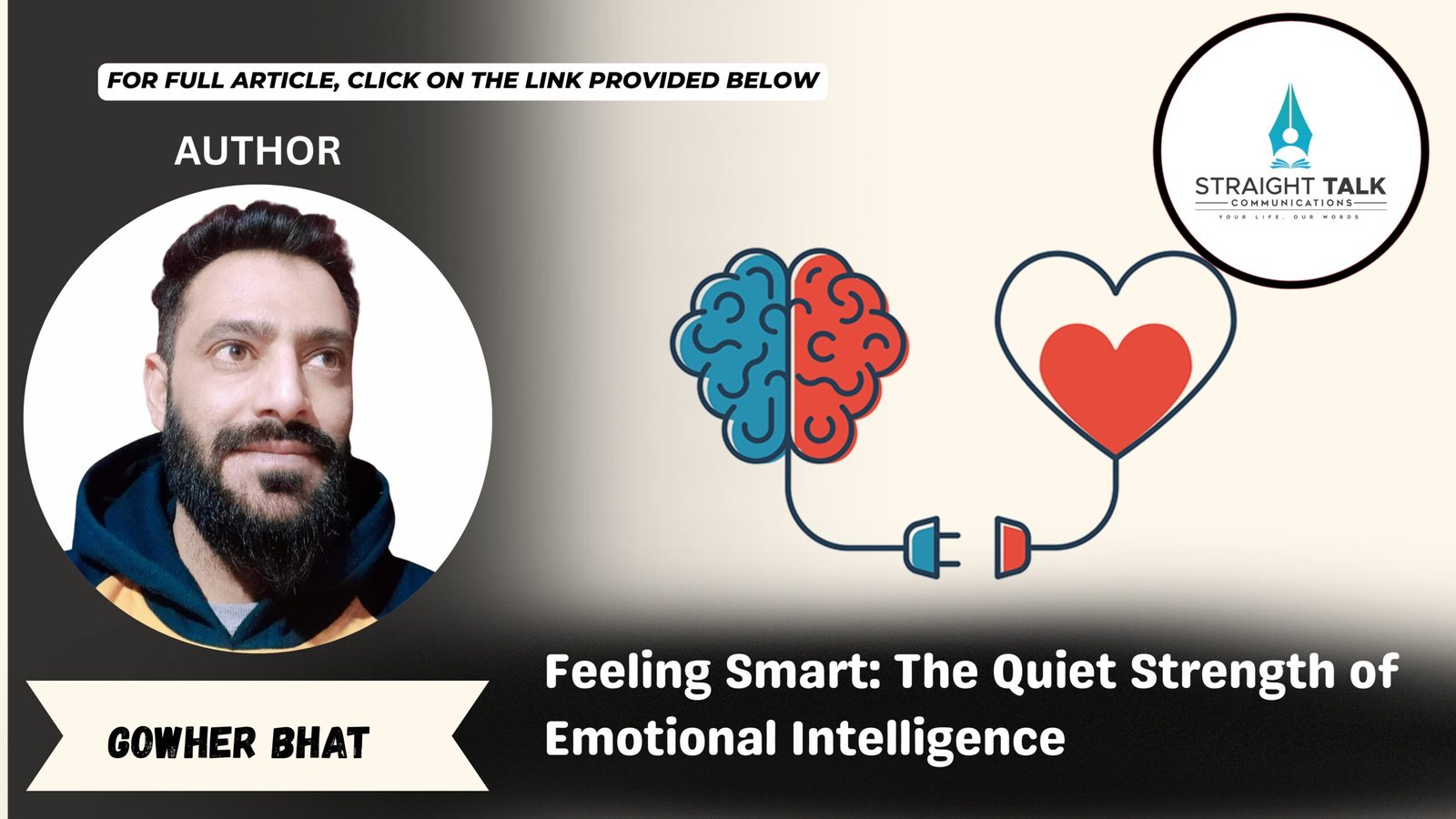The Rise of Online Religious Debates in Kashmir: A Battle for Superiority or Dangerous Distraction

Gowhar Bhat
There’s something unsettling happening in the world of religious preachers these days. What was once a space for quiet reflection and unity now seems more like a stage for performance. Preachers, instead of guiding their followers with humility, have turned faith into something else entirely—something competitive, something ego-driven. Instead of offering a hand to lift others, they’re standing there, eyes wide, ready to tear each other down. The worst part? They don’t stop there. They take these moments—these private, intimate debates—and they broadcast them on social media for all to see.
What happened? When did faith become a battleground?
It’s happening everywhere now. In Kashmir, a place where people once leaned on faith as a comfort, as a way to make sense of the struggle, the noise is getting louder. Preachers call each other out, challenge each other, and instead of stepping back and reflecting, they upload the recordings. They turn their differences into content. They put it out there for everyone to see, to listen to, and to judge. It’s as if the goal isn’t to seek truth anymore, but to win. To have the last word, to prove one’s superiority.
We’re watching it unfold in real time, and we can’t help but feel something’s gone wrong. The message used to be simple: faith was about love. Faith was about patience, about understanding, about lifting others up, not knocking them down. And yet now, it’s become a game. A game of who can argue better, who can talk louder, who can win the most followers. It’s all out there for the world to see—these confrontations, these ego-driven battles, these public spectacles. What’s worse is that it’s all a show, and the youth are watching.
The youth—our youth—are seeing this. And it’s shaping them. When they look to these religious figures, they don’t see humility. They don’t see generosity. They see a race for power. They see religious preachers trying to outdo each other in a space that should be about peace. Instead of learning how to give, how to serve, how to build a community, they’re learning how to compete. How to dominate. How to post the next viral video. The next debate. The next “show.”
When did we lose sight of the real message? When did we forget that religion isn’t about winning, it’s about living? About growing. About learning to love the people around you, not proving you’re better than them. This isn’t just some small issue. It’s changing the way we think, the way we act, and the way we raise our children.
These private conversations—these debates—should not be for public consumption. They shouldn’t be broadcast to the world as if they’re some kind of contest. When a preacher records another preacher in a private moment, it’s no longer about truth. It’s about pride. It’s about getting the upper hand. It’s about winning the audience. And that’s dangerous. The message that this sends to the youth is one of division, not unity. It’s telling them that faith is about being louder than the person next to you, not being kinder.
And let’s not forget the consequences of this behavior. The youth, especially in Kashmir, are being shaped by these actions. They see the way the religious preachers are acting, and they think that’s how it’s done. They think that faith is about winning arguments, about showing off who knows more, who can shout the loudest. But it’s not. It never was. And it doesn’t have to be that way.
If we want the youth to learn true humility, kindness, and generosity, we have to stop turning our faith into a competition. We have to stop uploading every moment of conflict for the world to see. We have to show them that faith is about building, not tearing down. It’s about being kind, even when it’s hard. It’s about listening, not just talking. It’s about showing up for each other, not looking for ways to outdo each other.
We’ve lost our way, but it’s not too late to find our way back. If the religious leaders, the ones with the microphones, the ones with the power, choose to humble ourselves, choose to lead with love instead of ego, the youth will follow. And maybe—just maybe—we can get back to the roots of faith, to what really matters. Not the followers we accumulate, not the noise we make, but the lives we touch, the kindness we spread, and the way we serve each other.
It’s time we take a step back. It’s time we should stop uploading our destructive private debates that spread hatred and start living the truth we preach. For the youth. For ourselves. And for the betterment of us all.
These debates, and the way they’re playing out in the public sphere, have real-world consequences. Take, for example, the violent clash in Kashmir that occurred in March 2025. A heated disagreement between two religious groups—Deoband and Ahle Hadees Jamaat—at Masjid Sideeqi in Kulgam escalated into a physical altercation. What began as a verbal confrontation quickly spiraled out of control, resulting in ten people being injured. This tragic event highlights how religious debates—once confined to private discussions—are now spilling over into dangerous real-life consequences. The very same debates that were once confined to the safe space of reflection and growth have now become the seeds for conflict and violence.
This incident serves as a stark reminder of the risks involved when we turn our faith into a public spectacle. When we upload our differences for everyone to see, we’re not just making a statement—we’re fanning the flames of division. The youth who are watching this unfold will grow up thinking this is how religion works. That it’s not about peace and understanding, but about proving who’s right and who’s wrong. This is a dangerous message to send.
We must ask ourselves: Is this the faith we want to teach the next generation? Is this what we want to leave behind? Or do we want to return to the true roots of our beliefs, to the values of love, unity, and compassion? It’s time to stop playing the game. It’s time to start living the message we’ve been given.
(The author is a published author, freelance journalist, creative writer, and experienced English instructor. The views expressed are exclusively of the author and not of the Straight Talk Communications.)







